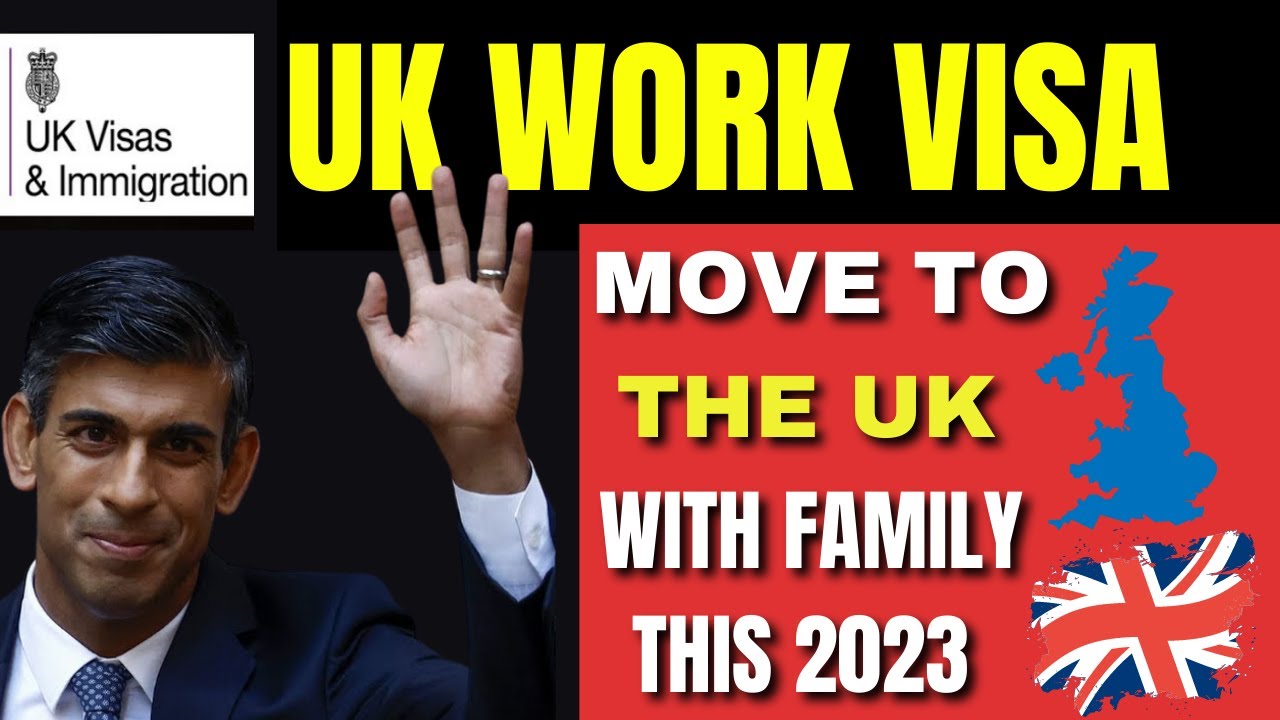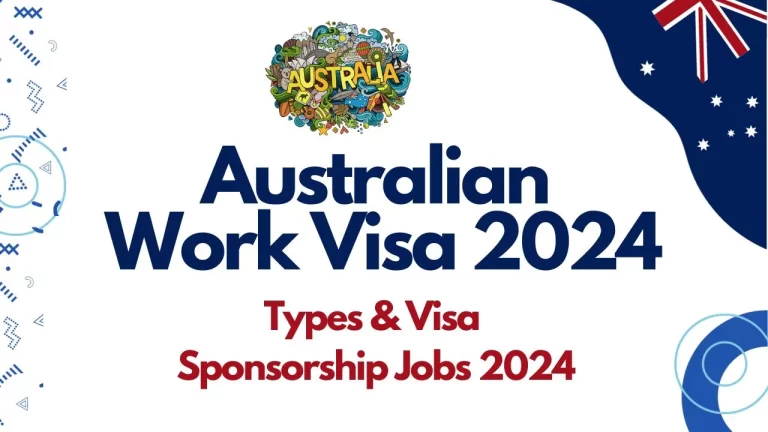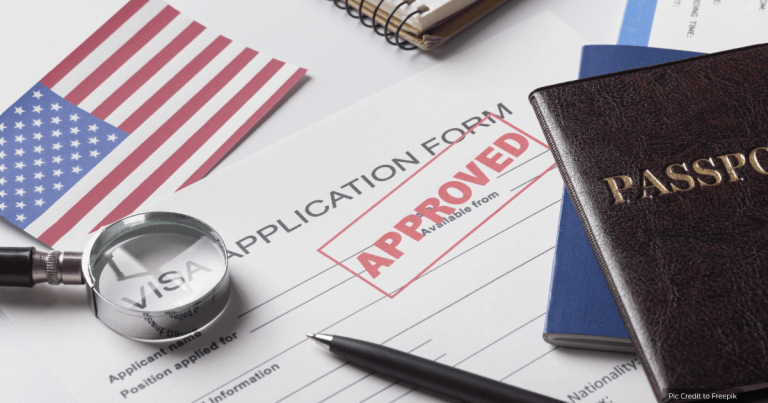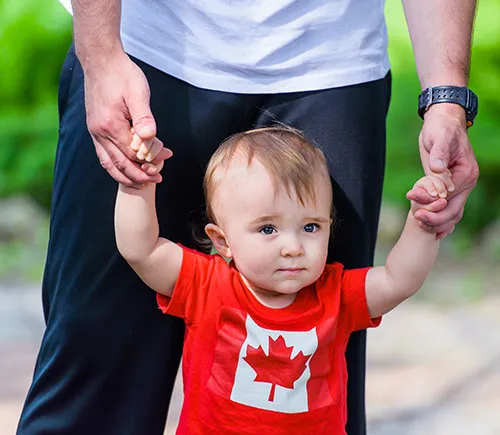UK Immigration: How to Apply for UK Work and Family VISA
Advertisements
The United Kingdom has a rich history of immigration, and its immigration processes have evolved over time to meet changing economic, social, and political needs. If you are considering moving to the UK for work, study, family reunification, or other purposes, it’s essential to understand the immigration processes and requirements. This comprehensive guide will provide you with a detailed overview of the UK’s immigration system, including various visa categories, eligibility criteria, application procedures, and recent developments in immigration policies.
The UK offers a wide range of visa categories to accommodate different immigration purposes. These visas are grouped into various tiers, each serving a specific purpose. Understanding these tiers is crucial when considering your immigration options.
- Tier 1: These visas are designed for high-value migrants, including investors, entrepreneurs, and exceptional talents.
- Tier 2: This tier is for skilled workers sponsored by UK employers. It includes the General Skilled Worker and Intra-Company Transfer visas.
- Tier 3: Historically, this tier was intended for low-skilled workers, but it has never been implemented due to labor market considerations.
- Tier 4: For international students pursuing education in the UK.
- Tier 5: Temporary worker visas for individuals participating in specific programs or temporary employment opportunities.
- Family and Spouse Visas: These visas allow family members to join or remain with their UK-based relatives.
- Settlement and Indefinite Leave to Remain (ILR): For those seeking permanent residence in the UK.
Points-Based System
The UK operates a points-based immigration system for many visa categories. Applicants must score a certain number of points based on various factors, including age, qualifications, English language proficiency, and sponsorship. The points system aims to ensure that individuals who come to the UK contribute positively to the country’s economy and society.
Immigration Authorities
UK Visas and Immigration (UKVI) is the government body responsible for processing visa applications and enforcing immigration rules. Additionally, the Immigration Enforcement team monitors compliance with immigration laws within the UK.
Common Visa Categories
Tier 1: Investor and Entrepreneur Visas
- Tier 1 Investor Visa: This visa is for individuals willing to invest a significant sum in the UK economy. The minimum investment threshold is £2 million. Applicants can settle in the UK after a certain period of continuous residence.
- Tier 1 Entrepreneur Visa: For those planning to start or take over a UK-based business. Applicants must invest at least £200,000 in their business and create job opportunities for British residents.
Tier 2: Skilled Workers
The Tier 2 category is divided into several subcategories:
Advertisements
- Tier 2 (General): For skilled workers with a job offer from a UK employer. Applicants must score points based on factors like job level, salary, and English language skills.
- Tier 2 (Intra-Company Transfer): For employees of multinational companies transferring to a UK branch. Different subcategories exist, such as Long-Term Staff, Short-Term Staff, and Graduate Trainee.
Tier 4: Students
- Tier 4 (General Student Visa): For individuals aged 16 or above who want to study in the UK at the higher education level or in a government-funded school.
- Tier 4 (Child Student Visa): For children aged 4 to 17 who want to study in the UK.
Tier 5: Temporary Workers
- Tier 5 (Youth Mobility Scheme): For young people from specific countries, allowing them to work, study, and travel in the UK for up to two years.
- Tier 5 (Temporary Worker): For individuals participating in various temporary work schemes, including creative and sporting events, religious work, and international agreements.
Family and Spouse Visas
- Spouse Visa: Allows spouses, civil partners, and unmarried partners of British citizens or settled residents to join them in the UK.
- Fiancé(e) or Proposed Civil Partner Visa: For those intending to marry or form a civil partnership in the UK.
- Parent of a British Child Visa: For parents of children who are British citizens or settled in the UK.
- Adult Dependent Relative Visa: For dependent parents, grandparents, and other adult relatives of British citizens or settled residents.
Settlement and Indefinite Leave to Remain (ILR)
Settlement and ILR visas allow individuals to live in the UK without any time restrictions. To obtain these visas, applicants typically need to have lived in the UK for a specified period, meet specific criteria, and demonstrate their commitment to the country.
UK VISA Application Process
Gathering Documentation
The first step in any UK visa application is to gather the required documentation. The exact documents you need depend on the visa category you are applying for. Commonly required documents include:
- Passport or travel document
- Passport-sized photographs
- Visa application form
- Proof of English language proficiency
- Evidence of financial means to support yourself
- Sponsorship documents (if applicable)
- Qualifications and certificates (if required)
- Criminal record certificate (if required)
Completing the Application
Once you have gathered the necessary documents, you can complete the online visa application form on the UKVI website. The form will ask for personal details, travel history, and information about your intended stay in the UK. Make sure to double-check all information for accuracy before submitting the application.
Biometric Enrollment
After submitting your online application, you will need to attend a biometric appointment at a designated Application Support Center (ASC) or a UK Visa and Citizenship Application Services (UKVCAS) center. During this appointment, your fingerprints and a photograph will be taken as part of the biometric enrollment process.
Visa Fees
Visa fees vary depending on the type of visa you are applying for and your location. It’s important to pay the correct fee and keep the receipt as proof of payment. Fee information can be found on the UKVI website.
Advertisements
Processing Times
Processing times for UK visa applications can vary widely depending on the visa category, your location, and the time of year. It’s advisable to apply well in advance of your intended travel date to ensure your visa is processed in time. You can check the current processing times on the UKVI website.
UK Sponsorship and Sponsor Licenses
Employers and Sponsorship
If you are applying for a Tier 2 (General) or Tier 2 (Intra-Company Transfer) visa, your prospective employer in the UK must hold a valid Sponsor License. This license allows them to sponsor foreign workers. Employers must meet specific requirements and responsibilities, including conducting a resident labor market test (in some cases) and ensuring compliance with immigration laws.
Educational Institutions and Sponsorship
For Tier 4 (General Student Visa) applicants, it is essential to have a Confirmation of Acceptance for Studies (CAS) from a recognized UK educational institution. The institution must also hold a Tier 4 Sponsor License.
Family Members as Sponsors
In some cases, family members in the UK can sponsor their loved ones’ visa applications. For example, a British citizen can sponsor their spouse’s visa application. The sponsoring family member must meet specific financial requirements and be able to support the applicant during their stay in the UK.
UK Recent Immigration Policy Changes
Brexit Impact
The United Kingdom officially left the European Union (EU) on January 31, 2020, leading to significant changes in immigration policies. As a result, the free movement of EU citizens to the UK ended, and a new points-based immigration system was introduced, applicable to both EU and non-EU nationals.
COVID-19 Pandemic Measures
The COVID-19 pandemic has also affected immigration policies and procedures. Travel restrictions, quarantine requirements, and visa processing delays have been common during the pandemic. It’s essential to stay updated on the latest COVID-19-related immigration measures when planning your travel and visa application.
Future Policy Considerations
Immigration policies can change over time due to political, economic, and social factors. Future changes may impact eligibility criteria, visa categories, and processing times. Staying informed about immigration policy developments is crucial for anyone considering a move to the UK.
UK Appeals and Immigration Tribunals
Grounds for Appeal
If your visa application is refused, you may have the right to appeal the decision. Grounds for appeal may include errors in the decision-making process, human rights considerations, or significant consequences for your personal life. It’s advisable to seek legal advice if you are considering an appeal.
Appeals Process
Appeals are typically heard by the First-tier Tribunal (Immigration and Asylum Chamber). The process involves submitting an appeal form and supporting documents. You may also attend a hearing to present your case. If the appeal is unsuccessful, you can request permission to appeal to the Upper Tribunal.
Immigration Tribunals
The Immigration and Asylum Chamber of the Upper Tribunal handles more complex immigration cases and appeals. Decisions made by this tribunal are generally considered final, but in some cases, further legal action may be possible.
Advice for Successful Immigration
Immigration Lawyers
Navigating the UK immigration system can be complex, and the stakes are high. Many applicants choose to seek legal advice and assistance from immigration lawyers or consultants to ensure their applications are accurate and complete. While not mandatory, legal assistance can increase your chances of a successful outcome.
Language Requirements
For many visa categories, applicants must demonstrate English language proficiency. This can be done by passing an approved English language test or by having a degree from a recognized English-speaking institution. Meeting language requirements is crucial to obtaining a UK visa.
Financial Requirements
Most UK visa categories have financial requirements, which may include demonstrating that you have sufficient funds to support yourself and any dependents during your stay in the UK. It’s important to understand and meet these financial requirements to avoid visa refusals.
Preparing for Life in the UK
Before moving to the UK, it’s essential to research and plan for various aspects of life, including accommodation, healthcare, education (if applicable), and cultural adaptation. Understanding the UK’s social and legal systems will help you integrate smoothly into your new home.
Conclusion
The United Kingdom’s immigration system is multifaceted, offering various pathways for individuals with diverse backgrounds and goals. Whether you are an investor, student, skilled worker, or family member seeking reunification, understanding the visa categories, application procedures, and recent policy changes is crucial for a successful immigration journey. By following the guidance provided in this comprehensive guide and staying informed about immigration developments, you can enhance your prospects of realizing your dreams in the UK.
Advertisements






